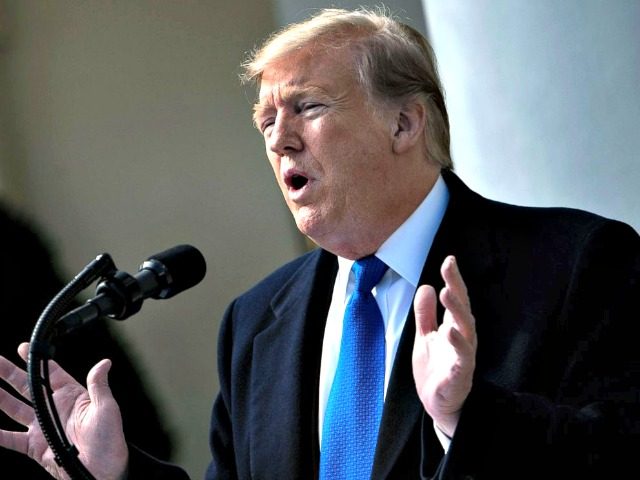What is the purpose of an immigration policy? Is it to benefit the interests of the nation that constructs and implements it, or is to benefit the immigrants who stand to gain from it? Before we can wisely design an immigration policy, we must first know the answer to that question, because different answers necessarily lead to different policies.
For the first time in decades, President Trump has raised this question publicly. In his Rose Garden remarks last week, the President pointed out, “Currently, 66 percent of legal immigrants come here on the basis of random chance. They’re admitted solely because they have a relative in the United States. And it doesn’t really matter who that relative is.” Further, he said, “Another 21 percent of immigrants are issued either by random lottery, or because they are fortunate enough to be selected for humanitarian relief.”
So, under the immigration policy in place right now, 87 percent of current legal immigrants are granted the right to immigrate to the United States because it benefits them, irrespective of whether or not their presence in the United States would benefit the United States as a whole. As the President pointed out, “only 12 percent of legal immigrants are selected based on skill or based on merit.”
That’s crazy. Perhaps more importantly, it’s irregular – a review of other nations’ immigration policies reveals this U.S. policy to be an outlier.
For instance, Canada admitted 296,346 permanent residents in 2016. Of those, 53 percent were economic immigrants, while just 26 percent were admitted because they had ties to someone already living legally in Canada. In Germany, immigration as a non-citizen of another European Union nation is limited to skilled or highly educated workers. Great Britain transitioned to a points-based immigration system favoring those with economic assets in 2010. And so on.
President Trump’s proposal aims to turn this current U.S. policy on its head. Under the president’s plan, immigrants allowed to come to the United States because they bring something our economy needs would jump to 57 percent, while those allowed to come because of a family tie would be halved to 33 percent.
That’s the way it ought to be. We should allow – and encourage – immigration from those who have skills and talents from which our economy, and our nation, can benefit. And we should prioritize them and their entry, as opposed to simply allowing anyone in who happens to be related somehow to someone already here.
Just as important, the president’s proposal recognizes that before you can begin to make changes to the immigration regime in place, you first have to secure the border. The President recognizes that the American people don’t trust their government on this issue, and he addressed it in his remarks:
The proposal begins with the most complete and effective border security package ever assembled by our country – or any other country, for that matter. It’s so important. This plan was not developed, I’m sorry to say, by politicians. We have a lot of politicians. But you respect the people and you know the people that have developed this plan. It was designed with significant input from our great law enforcement professionals to detail what they need to make our border … operationally secure.
The American people don’t trust their government on this crucial issue for a simple reason – their government has misled them. In the mid-1980s, when Ronald Reagan was president, the two parties came together to address the problem of illegal immigration with a trade-off bill they called “Simpson-Mazzoli” after its main Senate and House sponsors. The trade-off was simple: three million illegal immigrants would receive amnesty, in exchange for an end to illegal immigration.
So three million illegal immigrants were amnestied, but the end to illegal immigration never came. And for the last three decades plus, presidents and congresses controlled by both parties have looked the other way when it came to enforcing our nation’s immigration laws. Despite the ever-changing control of the White House or the Congress, there was one constant – the borders were never secured, and millions of illegal immigrants were allowed to enter the nation in violation of the law.
President Trump recognizes this. He appears to be the first president in decades to do so. And his proposal acknowledges this, and addresses it.
President Trump’s Rose Garden remarks represent a fundamental shift in the way our nation looks at immigration. His proposal is a serious one, assembled with a serious purpose. It deserves serious consideration.
Jenny Beth Martin is Honorary Chairman of Tea Party Patriots Action.

COMMENTS
Please let us know if you're having issues with commenting.